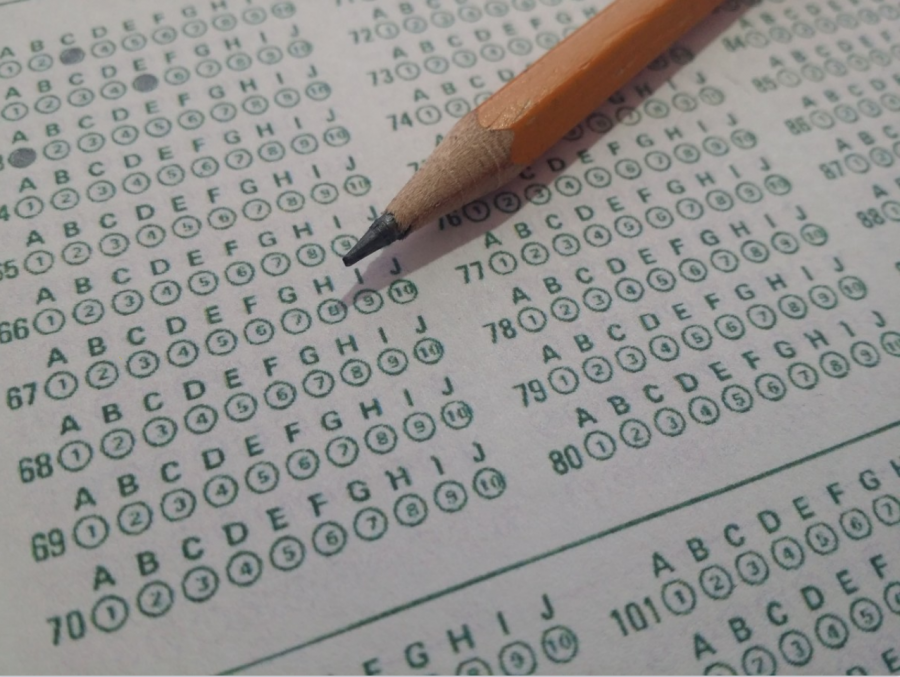College Board Makes Sweeping COVID-19 Changes to AP Format
And if you didn’t think anything else could change, the College Board has decided to completely rewrite the rules of the game for AP Exams this May.
March 22, 2020
The College Board has yet again shaken everyone up with a whole new testing system for this year’s Advanced Placement exams. At 12:03 PM on March 20th, the organization released an official statement surrounding the institution of these end-of-year tests after much anticipation by students and teachers alike, after postponing the March SAT and cancelling the May SAT out of COVID-19-related concerns.
The statement released by The College Board was fairly vague regarding information on the new AP Exam plan. All tests will be revised to an online format that can be administered at home, with the option of submitting additional handwritten work. The College Board has also made the decision to condense all exams to 45 minutes. This came as a shock to many, as exams typically span at least three hours.
But what has surprised the most people is the omission of several topics from the test, in accordance with what the College Board has inferred students would have learned before schools closed down.
According to Trevor Packer, the Senior Vice President of the Advanced Placement program of The College Board, via a Twitter post made on Friday the 20th, “The at-home AP Exams this year will not include any multiple-choice questions, only free-response questions adapted for secure testing at home. They will measure skills that can’t be learned from Google or chats with friends.”
The renovated testing schedule is raising many questions among high school students, parents, and of course, AP teachers.
CHS senior Chloe Min expressed some apprehension around the abridged tests, unsettled by these sudden drastic changes. “Up until this point we’ve been preparing to manage our time in a certain way because that is how the exam is supposed to be structured,” Min says. “[by just] limiting the exam to [just testing one component] could severely affect scores and the way in which we’ve been taught to manage our time,” she adds. “I would try to just split the time up in the most reasonable manner, but I don’t even know what this new structure of the exam is going to be.”
For students in AP classes, the challenges are twofold: one challenge is the fact that the course material is supposed to be on par with an introductory college-level course, and another is being able to learn the exam itself and what type of skills it is testing. In many of these classes, students are taking timed practice tests, adopting strategies to answer free response questions, and learning multiple styles of essay writing in order to maximize their success come test day in May. However, students are worried that all of this practice in preparation for their exams was futile upon announcement that their tests would endure only 45 minutes, not the whole 3-4 hours as they expected.
Meanwhile, CHS juniors such as Janice Kim are more thrilled by The College Board’s decision to reform the process rather than completely cancel the exams. “As someone who tried hard throughout the year to get the college credit,” Kim says, “I’m really glad they did not cancel the testing and found a safe alternative for everyone.”
Understandably, many rising seniors and soon-to-be college applicants are concerned with how these changes will affect their college applications in the coming years. In particular, Kim is optimistic that students will be on a fairly level playing ground, “since every junior who will be taking the ap test will be taking the test under the same condition, hopefully.” Kim adds, “colleges should definitely take this COVID-19 pandemic into consideration when reading applications.” However, there is still fear that “taking these tests online opens up [a] higher chance for the students to get access to […] resources during the test” despite assurance from The College Board that this will not be possible.
Teachers are currently withholding statements regarding AP testing in May, because, like students, they have been provided with little information as to what the future entails. Still, students and teachers are working closely together in these trying times, as everyone navigates far more uncharted territory than initially anticipated.
Currently, it is unclear as to whether or not Cresskill students will be required to sit for exams in light of the College Board’s changes. According to an email sent out earlier this week by Mrs. Blanco, “there has been no decision made as far as the May testing… We will keep you updated as we find out more information.”


